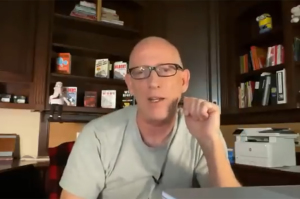Social Security Disability Trust Fund Will Be Depleted in 4 Years, Report Finds
Medicare and Social Security are running out of money sooner than previously thought, according to the annual report of trustees of the Medicare and Social Security program. The report highlights the need for reforms to maintain solvency of the programs.
The Social Security trust fund for disability benefits will only last four years, until 2016, which is two years sooner than expected. The Social Security trust fund for retirees will be exhausted in 2033, three years sooner than last projected. Medicare will be bankrupt in 2024, the same as predicted in last year's report.
Four factors are driving the program's insolvencies:
- a poor economy means the programs are generating less revenue through payroll taxes
- Baby Boomer retirements are increasing the number of those enrolled in the programs
- people are living longer and receiving benefits for a longer period of time
- in the case of Medicare, the cost of health care as a whole is increasing at a rate faster than inflation.
The trustees are appointed by the president but are from both political parties. Their report urged Congress to quickly make changes to the programs, because delays could hurt those who will rely upon these programs the most.
"Lawmakers should not delay addressing the long-run financial challenges facing Social Security and Medicare. If they take action sooner rather than later, more options and more time will be available to phase in changes so that the public has adequate time to prepare. Earlier action will also help elected officials minimize adverse impacts on vulnerable populations, including lower-income workers and people already dependent on program benefits," the trustees wrote.
In a separate report, Rick Foster, Medicare's chief actuary, wrote that the report is based upon some unrealistic assumptions. Under the Affordable Care Act (2010), or "Obamacare," cuts in payments to doctors are set to go into effect, but he believes that Congress will need to rescind those cuts.
"While the Affordable Care Act makes important changes to the Medicare program and substantially improves its financial outlook, there is a strong likelihood that certain of these changes will not be viable in the long range," Foster wrote.
In a separate report earlier this month, Charles Blahous, one of the Republican trustees, warned that Affordable Care Act (2010), which was intended to reduce health care costs and lower deficits, will add $340-$530 billion to the national debt over the next 10 years.
Reform of Medicare and Medicaid has become a central issue in the 2012 election. President Obama's 2013 budget proposal and the House Republican budget, also called the "Ryan Plan," have become surrogates for the two sides of the issue.
The Ryan Plan would raise the age of eligibility for Medicare and seniors would be provided a voucher to buy insurance on the private market or stay in the Medicare program. The budget would reform Medicaid by transforming the program into a block grant to the states to provide health insurance to the poor.
Obama's budget would save money by cutting payments to health care providers. Both budgets would require wealthy beneficiaries to pay more. Neither budget reforms Social Security.
Democrats accuse Republicans of trying to end the programs, while Republicans accuse Democrats of not doing enough to save the programs.
Robert Bixby, executive director of the Concord Coalition, a think tank concerned about fiscal stability in the federal budget, argued for mutual sacrifice in order to bring about needed reforms.
"Ideally, responsible changes in the entitlement programs should be done as part of a comprehensive program of fiscal reform that would also include cuts in other domestic programs, reductions in the defense budget, and sweeping changes in the federal tax system," Bixby said in a press release. "Everyone may think that their cow is sacred but in fact there can be no sacred cows in the search for solutions."



























